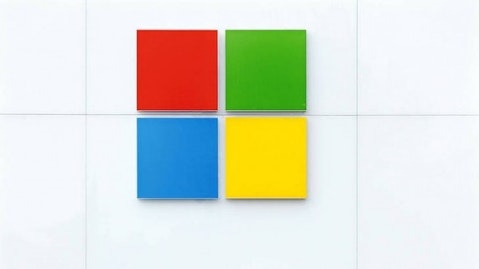Unlike its Microsoft Corporation (NASDAQ:MSFT) counterpart, Sony Corporation (ADR) (NYSE:SNE) does not plan to put restrictions on its new console, the PlayStation 4.
In fact, Sony is using the restrictions set out by Microsoft to lambaste the company for being tough on its gamers.
Applause for Sony, drooped heads for Microsoft
Sony Corporation (ADR) (NYSE:SNE) CEO Jack Tretton was met with applause after making the announcement at the E3 video game conference on June 10 that there wouldn’t be restrictions on the PS4 games. Tretton answered a few questions about the console instead of revealing its lineup of games, and used the foot-in-mouth remarks of Microsoft Corporation (NASDAQ:MSFT) to build up his own brand.
Microsoft restricts usability
Microsoft has faced a slew of criticism since saying the yet-to-be-released Xbox One will require users to only trade in games at “participating retailers.” Additionally, gamers can only give a game to a friend once, and that person must have been a friend for at least 30 days. Additionally, Microsoft Corporation (NASDAQ:MSFT) is requiring all users to check online once every 24 hours, which narrows the market to those with reliable Internet. Other rules are left up to the publishers, leaving a lot of room for confusion.
No comment on restrictions at E3 conference
The Microsoft portion of the conference was held earlier on June 10, during the first day of the E3 video game conference, but it made no mention of the restrictions it released earlier this month.
Sony Corporation (ADR) (NYSE:SNE)’s handling of the press conference showed the firm is using Microsoft Corporation (NASDAQ:MSFT)’s restrictions to its advantage. In fact, Tretton outright said his company “won’t impose any restrictions on used games. It won’t require you to check in online. It won’t stop working if you haven’t authenticated within 24 hours.”
PR nightmare
The restrictions Microsoft Corporation (NASDAQ:MSFT) has set are a PR agent’s Freddie Krueger. Microsoft’s announcements were predictable bad press. While I can see, in a way, why Microsoft would want to impose limits on trading games, it doesn’t bode well for company loyalty. After all, not many people are loyal to the Windows operating brand, but many gamers preferred previous versions of the Xbox to the PlayStation. Microsoft seems to continue to shoot itself in the foot. Even if the company has good reason to prevent the over-distribution of games, which are increasingly easy to copy for friends, the firm shouldn’t have announced their restrictions long before the E3 conference. Any PR student would know that the announced restrictions would be used by competitor Sony Corporation (ADR) (NYSE:SNE) to trump up its PlayStation 4. It was an opportunity Tretton would be remiss to dismiss.
Pricing and release date
Microsoft Corporation (NASDAQ:MSFT) also likely lost much of its loyal customer base, and potential new ones, by pricing the device $100 above the announced cost for the PlayStation 4, which is priced at $399. The only advantage Microsoft has is its release date of November, while Sony Corporation (ADR) (NYSE:SNE) has announced the “holidays” as the time it will begin sales of the PlayStation 4.
What it all means for sales
Even if Microsoft had a superior product, the company would likely find a way to make it as user-unfriendly as possible. The games and graphics offered on the Xbox One may very well be superior to what the PlayStation 4 can bring. However, when a firm makes operating the device difficult and puts restrictions on what they can and can’t do, customer loyalty will diminish. Didn’t Microsoft Corporation (NASDAQ:MSFT) learn that from the release of Windows 8?
Phillip Woolgar has no position in any stocks mentioned. The Motley Fool owns shares of Microsoft Corporation (NASDAQ:MSFT).
The article No Restrictions on PS4 Games originally appeared on Fool.com.
Phillip is a member of The Motley Fool Blog Network — entries represent the personal opinion of the blogger and are not formally edited.
Copyright © 1995 – 2013 The Motley Fool, LLC. All rights reserved. The Motley Fool has a disclosure policy.





